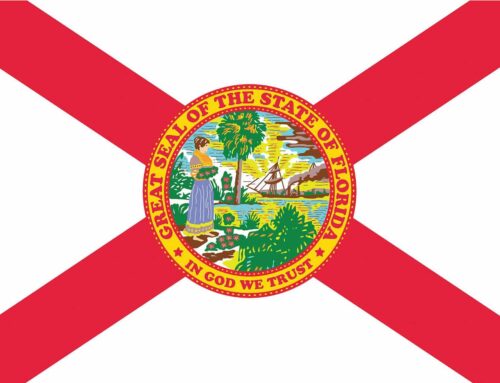If you get a DUI conviction, you’ll be blocked for driving for Uber, Lyft, and most other ridesharing programs for at least seven years.
The same goes for Doordash.
That’s true even for convictions out of state. Uber doesn’t only check your driving abstract in the state where you currently live. The company runs a full background check by Social Security Number. So if you’ve cot convictions, their background check will pick them up in any state.
So if you’ve got a DUI conviction within the last seven years (ten years in California) and the charge hasn’t been formally expunged, Uber won’t let you drive for them. If you’re a new applicant, you won’t be accepted.
If you’re currently driving for Uber, Lyft, Doordash, or any other similar service we’ve checked, you’ll get dropped as a driver when they find out about the DUI conviction. That might take a little time. But Uber re-runs background checks on their current drivers on a random basis to catch this very thing. Generally, they’ll re-run a check on you at least annually. And if you have a DUI, reckless driving, fleeing from police charge, or if you have a speeding violation for going 20 miles per hour or more over the speed limit, it’s just a matter of time before Uber finds out, and drops you from the program.
The same goes for domestic violence offenses, too. Any felony violent offenses and sexual offenses for the last seven years will disqualify you.
You can actually get a job driving an 18-wheeler with a CDL license sooner than you can deliver a bag of Chicken McNuggets driving for Doordash after a DUI conviction.
If you have a citation, and you rely on driving for Uber, Lyft, or other similar services for a significant part of your income, you need to be very careful about how you and your attorney handle it.
Pleading guilty immediately to your DUI or DWI will just put it on your record immediately. And that part of your income will be cut off that much sooner.
So even if it’s going to be an uphill battle at trial (read: You’re guilty as Sin), you might consider entering a “not guilty” plea, and then driving like mad. Lawyers cost money. But you might be able to make much more than your lawyer costs by taking every ride you can between now and your trial date.
And if you were smart about your arrest, and you shut the f*** up and didn’t try to “reason” your way out of the arrest by flapping your piehole to the cops, there’s a very good chance a skilled lawyer can find an opening to get you off. Or at least resolve your charges without a felony DUI conviction.
Whatever happened at your arrest, though. there are a few things you can do to ward off or mitigate the blow from the fallout of a DUI conviction.
1. Get a lawyer.
This should be a no-brainer. A good attorney will know a hundred ways to beat a DUI charge that wouldn’t even occur to most people. Unless the cops acted perfectly, there’s a very good chance a skilled attorney can get the charges dropped or reduced. This can be very meaningful: Not every DUI is prosecuted as a felony.
2. Work on establishing reasonable doubt.
This is where a skilled attorney is critical. They all know a hundred tricks to establishing reasonable doubt that wouldn’t occur to normal people. The more reasonable doubt you can demonstrate pre-trial, the more nervous prosecutors get, and the more willing they are to play ball with reduced charges.
3. Work on reducing the charge.
Not every DUI is a felony. If you’re a first offender, and there are no aggravating circumstances (accident, injury, minor in the vehicle, blowing more than .15 on a breathalyzer, illegally refusing a roadside test, resisting arrest, etc.) you may get it proscecuted as a misdemeanor, rather than a felony.
4. Work on setting the case up for later expungement or sealing.
That’s important, because it opens the door to more options. For example, depending on your state, you may be able to get a misdemeanor case into a diversion program, and possibly expunged a year or so later, after successfully completing the program.
Note: Some states, such as Florida, do not expunge or seal DUI convictions. Once you have a DUI conviction, it’s on your record for good.
Also, in Florida, you can get arrest records expunged as long as you were never convicted. If the case was thrown out or the DA dropped the charges, you can work on expungement or sealing.
So it’s even more critical in Florida, Alaska, Arizona, and other states that keep DUIs on your record for decades or that don’t expunge or seal DUI convictions to get a lawyer and create enough reasonable doubt for the courts to find you not guilty, get the DA to drop the charges, or to agree to a plea deal for a lesser conviction, such as reckless driving.
5. Work on allowing courts to withhold adjudication.
Depending on your state, securing a plea deal for a reduced charge of reckless driving may also give the courts an opening to withhold adjudication, pending completion of a diversion or other program. That would also keep a DUI off your record. And you may be able to seal or expunge the reckless driving records, eventually.
If your current rideshare company drops you for a DUI conviction, but you are able to successfully complete a diversion program and get your conviction sealed or expunged, they might not take you back (They’ll know you had a DUI conviction in the past!). But if you can successfully complete a diversion program, you might be able to get your case expunged in a year or two. And then you might be able to sign on with a different driving service.
6. Get proper car insurance.
Once you have a DUI conviction – and in some states, once you even have a citation, let alone a conviction – you fall into the high-risk driver category, as far as insurance companies are concerned.
This means you’re going to need a different car insurance strategy. You’ll also need an SR22 form filed with your state’s Department of Motor Vehicles before you can get the temporary suspension of your license lifted.
It also means your car insurance premiums are going to go up. By a lot.
But you can limit the financial damage by immediately getting quotes from multiple competing insurance companies that are willing to take on higher-risk drivers.
You may also want to increase your deductible to free up your budget to put on some serious liability protection.
Hey, the insurance companies know you’re a high risk driver now. It’s because you are. They’re not dumb. It’s probably because you are.
You should get as much liability insurance protection as you can eat. The state minimum coverage doesn’t cut it anymore. Even the SR22 minimum limits are too low to protect you.
If you’re currently driving for a ride service (pending the results of your case), you should definitely have a professional look over your insurance and make sure you’ve got the protection in place you think you have.
Contact the Select Insurance Group today. Get some quotes, and ask to speak with an agent to custom design a policy for your specific situation.
See you on the road!
Steve “Mr. Insurance” Ludwig
CEO
Select Insurance Group





